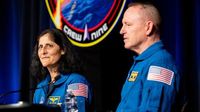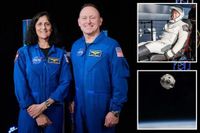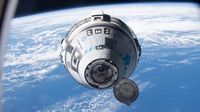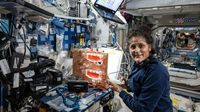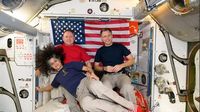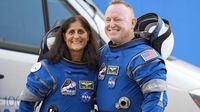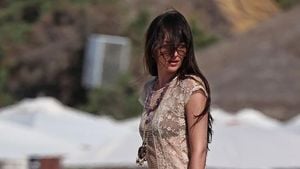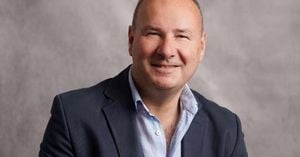NASA astronauts Sunita Williams and Butch Wilmore recently revealed harrowing details from their nearly nine-month ordeal aboard the International Space Station (ISS), where they faced a near-catastrophic malfunction of their Boeing Starliner spacecraft. Initially intended as an eight-day test flight, the mission spiraled into an unexpected saga that kept them in orbit for a staggering 286 days, 278 days longer than anticipated.
During a media round following their dramatic return to Earth on March 18, 2025, the astronauts recounted the terrifying moment when they lost control of the Starliner while attempting to dock with the ISS. Wilmore described the incident vividly, recalling how four thrusters failed as they approached the station, leaving them adrift in space. "I don't know that we can come back to Earth at that point," he stated, emphasizing the gravity of the situation.
Flight regulations typically require malfunctioning spacecraft to abort docking and return to Earth, but NASA made the controversial decision to waive this mandate. Wilmore explained that panic began to set in as they struggled to direct the malfunctioning ship toward the ISS. "So there we are, loss of 6DOF control, four aft thrusters down, and I'm visualizing orbital mechanics," he said, detailing the precarious position they found themselves in.
Despite the dire circumstances, the astronauts were able to regain some control thanks to the intervention of NASA's Mission Control. They instructed Wilmore to relinquish control of the capsule, allowing ground control to reset the thrusters remotely. This action restored two of the failed thrusters, providing just enough maneuverability for a safe docking with the ISS. Williams expressed her relief at the moment, saying, "I did this little happy dance... just really happy that Starliner docked to the space station."
Reflecting on their extended stay in space, Williams noted the unexpected public interest in their mission. "Life goes on up there," she said, emphasizing that they remained focused on their duties as ISS crew members despite the challenges. Wilmore also shared his thoughts about his family during their prolonged absence, admitting, "It's not about me. It's about what this human spaceflight program is about. It's our national goals."
Following their return, both astronauts expressed their willingness to fly on the Starliner again, stating that they believe the issues encountered will be rectified. "Yes, because we're going to rectify all the issues that we encountered. We're going to fix it; we're going to make it work," Wilmore affirmed. Williams echoed similar sentiments, highlighting the importance of their involvement in the program.
The astronauts' journey began on June 5, 2024, when they launched aboard the Starliner for what was supposed to be a brief mission. However, mechanical issues forced them to remain on the ISS for an extended period, turning their test flight into a rescue operation. Wilmore and Williams were left with the daunting task of navigating their malfunctioning spacecraft while also managing their mental and emotional well-being during the lengthy mission.
As they approached the ISS, the astronauts faced multiple thruster failures, which left them with limited control over the spacecraft. Wilmore described the moment they lost the fourth thruster, saying, "Now we've lost 6DOF control. We can't maneuver forward." The situation was further complicated by concerns about losing communication with Mission Control, which added to the tension aboard the Starliner.
Ultimately, the astronauts were able to dock safely at the ISS, but they knew their troubles were far from over. Wilmore expressed concern that they might not return home in the spacecraft, stating, "I was thinking, we might not come home in the spacecraft. We might not."
The astronauts' rescue involved a complex series of events, including the arrival of a SpaceX Crew Dragon capsule that brought their replacements to the ISS. This allowed Wilmore and Williams to begin their journey back to Earth, culminating in a splashdown off the coast of Florida.
Upon their return, both astronauts were met with a wave of public interest and support. They have since become household names, with their story capturing the imagination of people around the world. Wilmore remarked on the overwhelming response to their mission, saying, "We didn't feel abandoned, we didn't feel stuck, we didn't feel stranded." Instead, they viewed their extended stay as an opportunity to contribute to the ongoing efforts of the ISS and the larger goals of human spaceflight.
As they reflect on their experiences, both astronauts remain committed to the future of space exploration. They hope that their story will inspire others to pursue careers in science and engineering, emphasizing the importance of resilience and adaptability in the face of unexpected challenges.
